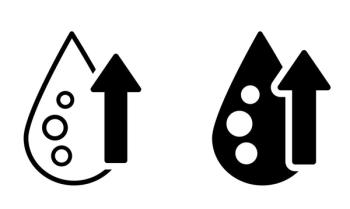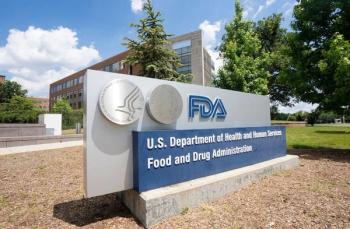
Benefit Seen for Intensive Statins in Acute Coronary Syndrome
WASHINGTON -- Accentuate the statins soon after hospitalization for acute coronary syndrome to reduce the two-year risk of death and cardiovascular events, according to a meta-analysis.
WASHINGTON, Sept. 26 -- Accentuate the statins within two weeks of hospitalization for acute coronary syndrome to reduce the two-year risk of death and cardiovascular events, according to a meta-analysis.
Early, intensive statins after acute coronary syndrome reduced the risk of adverse coronary event by about 20% over two years with a hazard ratio of 0.81 for death and cardiovascular events overall, reported Eddie Hulten, M.D., M.P.H., of the Walter Reed Army Medical Center here in the Sept. 25 issue of Archives of Internal Medicine.
While previous data have been inconsistent in showing a short-term benefit to early, intensive statins after acute coronary syndrome, the pooled analysis of 13 randomized, controlled trials indicated that the death and cardiovascular event benefit began at four months and reached statistical significance by one year.
The risk of cardiovascular events overall decreased significantly compared to controls by six months after the initial acute coronary syndrome (HR 0.76, 95% confidence interval 0.70 to 0.84). This effect persisted with an overall pooled hazard ratio for the entire 24 months of 0.84 (95% CI 0.76 to 0.94).
However, the rate of myocardial infarction was not improved by early, intensive statin use (HR, 0.89, 95% CI 0.60 to 1.33), which was unexpected.
"We would have expected that for statins to have benefits with regard to all-cause mortality, the intervention should likewise have reduced the rate of recurrent MI," wrote Dr. Hulten and colleagues.
Cardiovascular death was reduced in a subgroup analysis (HR 0.76, 95% CI 0.66 to 0.87) as was ischemia (HR 0.68, 95% CI 0.50 to 0.92), both of which began at four months and continued with relatively stable hazard ratios out to two years.
The trials used 80 mg of Lipitor (atorvastatin), which appeared to have the best evidence of benefit, as well as 20 mg of Lipitor, 40 mg of Pravachol (pravastatin), 80 mg of Lescol (fluvistatin), and 80 mg of Zocor (simvastatin). These were compared with placebo in nine trials, placebo then a lower dose of statin in one trial, a lower dose of statin in one trial, and usual care at the physician's discretion in two trials. The average age of the 17,963 participants was 60 and 76% were male.
Safety data showed comparable tolerability for intensive statins and the control arms. Only three cases of rhabdomyolysis were reported, all of which were on high dose Zocor. Two trials revealed slightly higher rates of hepatitis in the intense statin arms compared with controls (3.3% and 2.5% versus 1.1% and 0.6%).
That most of the benefits began at four months may not be surprising, the authors noted, because statins suggested effect on plaque stabilization may take several months to achieve.
The early, intense statin groups had a significantly greater reduction in low density lipoprotein cholesterol levels compared with controls (mean 34 mg/dL reduction versus 6 mg/dL, P<0.001). However, "there is no significant evidence that reduction in LDL-C level explains these beneficial effects," the investigators wrote.
They said a pooled analysis using patient-level data should be done for these trials to confirm these results and explore possible sources of heterogeneity.
The American College of Cardiology guidelines recommend initiating statins for patients with acute coronary syndrome and high LDL-C levels, but do not recommend early, intense statins for all acute coronary syndrome patients.
Newsletter
Enhance your clinical practice with the Patient Care newsletter, offering the latest evidence-based guidelines, diagnostic insights, and treatment strategies for primary care physicians.
































































































































